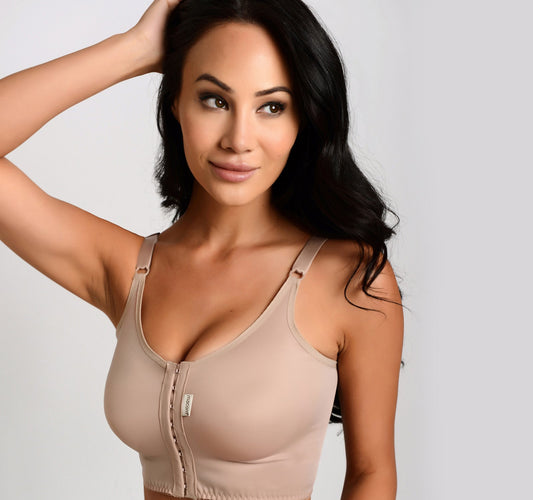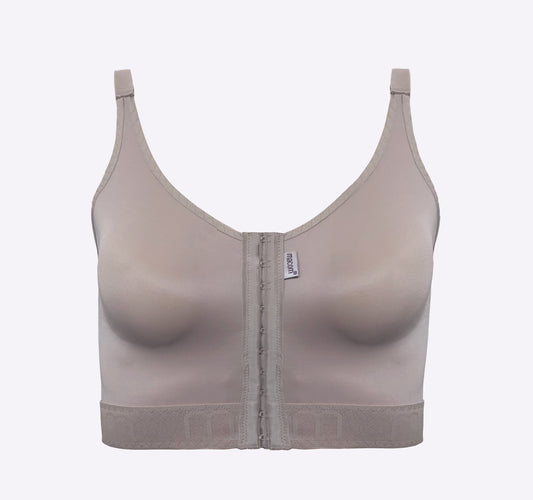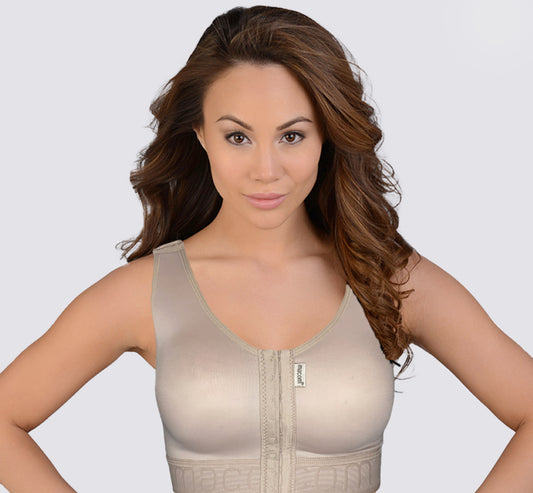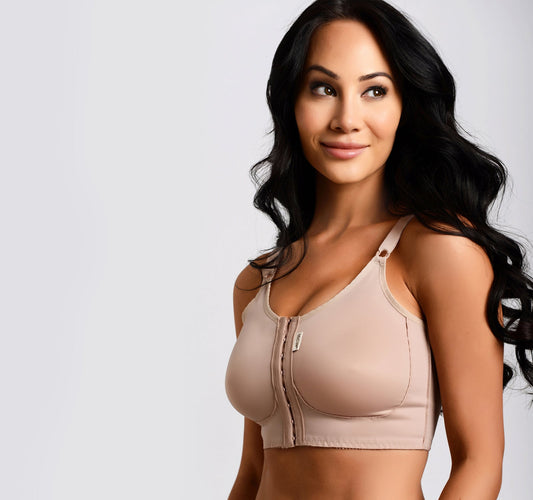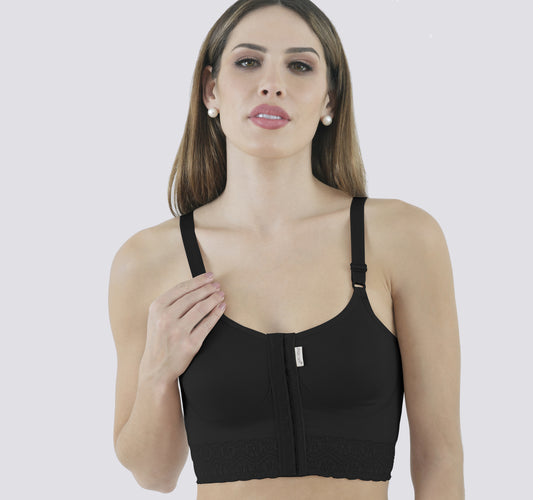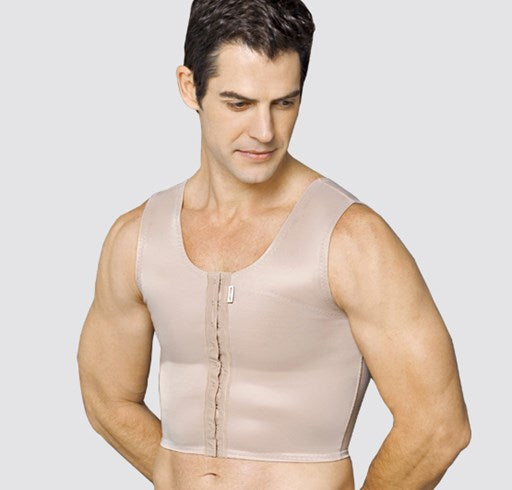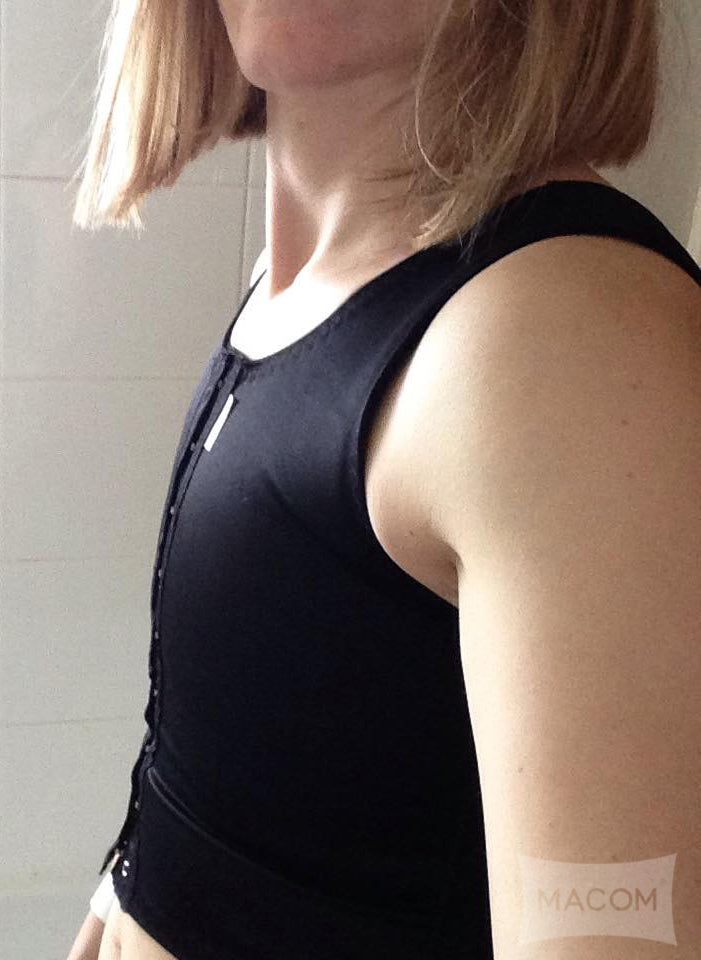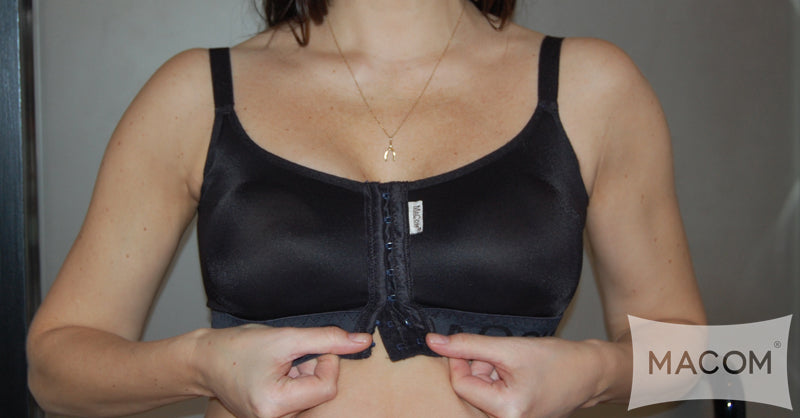Breast Implant Illness (BII) is not an official medical condition. Yet, the number of people with breast implants experiencing issues and health concerns, from brain fog to inflammation, is enough for government bodies and medical professionals to at least be aware of it.
If you are considering breast implants or have breast implants and are experiencing health issues, you should be aware of what is known so far with regard to BII. If you have any concerns, we recommend contacting your consultant or surgeon for further advice.
What Is Breast Implant Illness?
Currently, Breast Implant Illness is best defined as a collection of symptoms that those with breast implants self-diagnose as having due to their implants. The British Association of Aesthetic Plastic Surgeons (BAAPS) notes that “Whilst not a medical diagnosis, they refer to their symptoms as Breast Implant Illness”.
Typically, BII is seen as the body’s response to the inflammation and toxicity of a breast implant, though there doesn't appear to be any direct correlation between patients or types of implants. Not everyone with breast implants experiences BII and the symptoms are not exclusive to BII.
Breast Implant Illness Symptoms
Reported symptoms of BII typically include some of the following symptoms:
- Anxiety
- Cognitive dysfunction, such as brain fog and memory loss
- Fatigue
- Gastrointestinal and digestive issues
- Hair loss
- Joint pain
- Muscle aches
- Rashes
- Recurring infections
- Skin dryness, particularly around the eyes and mouth
- Thyroid and adrenal gland issues
Issues With Identification
The difficulty with identifying BII stems from the wide range of symptoms that could also be caused by a number of unrelated factors. The fact that people with BII experience the condition differently makes it even harder to diagnose and define.
BII Research
Unfortunately, due to a lack of research, a scientific causal link between the implants and these symptoms has not yet been formally identified. BII, therefore, does not meet the criteria to be recognised as a verifiable condition by official bodies, like the WHO. The absence of this classification has meant a significant lack of awareness and research into what can be a debilitating illness and that might otherwise be preventable.
BII Diagnosis
As Breast Implant Illness is not recognised as a verifiable condition, patients are unlikely to be diagnosed with BII by a medical professional. However, some patients have reported that their doctors are able to make a diagnosis, usually under an autoimmune disease narrative, and may suggest BII treatments once other conditions have been ruled out.
If you are experiencing the symptoms of BII, trust your instincts. Try to assess the timeliness of your symptoms in relation to when you got your breast implants, and speak to your surgeon and/or doctor if you have any concerns. Patients often report that the number of symptoms and intensity of them increases over time.
BII Treatment
Breast Implant Illness treatments are limited given it is not an official condition. Typically, breast implant removal is the primary solution, with secondary treatments based on dealing with the symptoms a patient is experiencing. However, before you consider explant surgery, we recommend first adopting a holistic approach and making changes to your diet and lifestyle to see if your symptoms improve.
Holistic Diet & Lifestyle Changes
The holistic method of treating BII is to use an Elimination Diet, which involves limiting and removing external triggers that may be adding the cause of inflammation in the body. A certain food is removed from your diet for 3-4 weeks then reintroduced to see what impact it has over the following 3 days. This can help you identify what worsens or improves your symptoms.
Common foods that can cause inflammation and can be removed in an elimination diet include:
- milk - including cheese and yoghurt
- eggs
- wheat products – bread, pasta, etc
- soy
- tree nuts - almonds, Brazil nuts, cashew nuts, hazelnuts, peanuts, etc
- seafood - fish, shellfish, etc
Causes Of Breast Implant Illness
The causes of breast implant illness are a best guess at this stage. However, from the limited studies that have been done, along with reports from patients, we do have an idea of some of the potential causes of BII:
A Chronic Foreign Body Inflammatory Response
A chronic foreign body inflammatory response can occur if the body decides to fight against a foreign object within the body. With BII, the body is aiming to protect the vital organs and glands close to the implant in the chest.
A Gel Bleed
A gel bleed occurs when the silicone/heavy metals/chemicals from the implant slowly leak into the body. A PMC 2022 study found a correlation between those with symptoms and higher levels of zinc and arsenic in the breast tissue. The metals seep through the intact implant shell, inducing a chronic inflammatory process.
Biofilm/Bacteria Develop On The Surface Of The Implant
The presence of biofilm or bacteria in the body can cause inflammation, infection or capsular contracture. These can all lead to more serious complications and diseases.
Polymeric Biomaterials Oxidize In The Body
Polymeric biomaterials that oxidise in the body can cause degradative oxidative stress. This is when the implant valves allow body fluid in and cause colonisation of microorganisms inside the implant, producing biotoxins.
These BII causes can lead to immune deficits and immune dysfunction that create sicknesses in the body and bacterial, viral, fungal or parasitic infections which can further develop autoimmune symptoms and diseases.
An Account Of BII: Danica Patrick
Former race car driver Danica Patrick reported that she started experiencing Breast Implant Illness three years after her implant surgery. Doctors could not explain her fatigue, weight gain, skin dryness or hair loss.
Patrick didn’t learn about Breast Implant Illness until 5 years later in 2022, which prompted her to have the implants removed. She has shared on Instagram that she has been getting better since the removal, but that “healing is not linear”. She is still undergoing medical examinations and treatment to recover from her implants.
Breast Implant Patients Need To Be Warned About BII
Breast Implant Illness can be a life-changing condition and it deserves official recognition. Current scientific evidence shows that breast implants can cause many health complications and patients should be aware of them when considering the surgery.
We hope the UK government will include BII in the black box warning* being implemented so that BII can be taken seriously and funds are made available to research preventative measures and treatments.
*A black box warning or boxed warning is the highest safety-related warning, often used for medications with serious or life-threatening side effects or risks.
Is There a Black Box Warning For Breast Implants?
The US Black Box Warning For Implants
The FDA has taken steps to ensure that all patients in the US considering breast implants know about the potential diseases and risks associated with breast implants. This is done in the form of a black box warning.
This warning includes the risks of developing Anaplastic Large Cell lymphoma (ALCL) and Breast Implant Illness (BII). The FDA black box warning must be on all breast implant packaging and surgeons are required to follow a checklist to ensure their patients know about all the relevant risks before going ahead with the surgery.
The UK Black Box Warning For Implants
There are currently talks in the UK government about implementing a black box warning about the risks of ALCL for patients considering breast implants. BII has not been included in these discussions.
Understanding Breast Implant Illness: FAQs
How Common Is Breast Implant Illness?
There are no formal figures of how many people have or have had the illness. There are, however, 2000 reports made to the FDA per year and 180K members in The Breast Implant Illness and Healing by Nicole Facebook group.
How Soon Does Breast Implant Illness Start?
Symptoms of Breast Implant Illness have been reported from as soon as breast implants are inserted to any number of years later. Whilst it is normal to experience similar symptoms to those of the disease straight after surgery, such as fatigue, inflammation and depression, if the symptom(s) last more than a few weeks, it can be a sign of BII.
Can Breast Implant Illness Come and Go?
The symptoms of Breast Implant Illness may come and go. Whilst some people may recover from BII completely, some may always have BII and others may experience a change in symptoms over time.
Can Saline Implants Cause Breast Implant Illness?
There have been reports of BII from those with both saline implants and silicone ones.
What Diseases Are Associated With Breast Implants?
Anaplastic Large Cell lymphoma (ALCL)
ALCL is a rare form of cancer, a type of non-Hodgkin’s lymphoma that has been linked with textured silicone implants. The FDA and ASPS estimate that the current lifetime risk of contracting ALCL with textured implants ranges from 1 out of every 3,817-30,000. The likelihood may, therefore, be considered low, however the impact of developing cancer is high.
Auto-Immune Diseases: Rheumatoid Arthritis, Scleroderma, Sjögren’s Syndrome
A 2019 study states that there is not yet enough research to determine whether Breast Implant Illness causes autoimmune diseases. However, many scientists believe it to be the case. Although a causal link has not been discovered, research has found that people with silicone breast implants are 6-8x more likely to be diagnosed with rheumatoid arthritis, scleroderma or sjögren’s syndrome. It has been suggested that silicone and saline implants can trigger an autoimmune response that can lead to one of these diseases.
There is some evidence that bacteria can grow inside implants, so if they were to rupture the bacteria could escape into the body. There is also a theory that bacteria could escape in small amounts without a rupture, which is even harder for a patient or medical professional to discover. The bacteria from breast implants can cause mould to grow around the valves releasing a biotoxin that triggers an autoimmune response, which may then lead to the development of these autoimmune diseases.
Is Breast Implant Removal A Difficult Surgery?
Breast implant removal is often more complicated and expensive than the implant insertion. The procedure is risky and can cause other health complications, such as infection or lung injury or even induce the need for further surgery, such as mastopexy.
Breast implant removal for most patients can be a very difficult and emotional decision and can be extremely costly if not covered by insurance.






